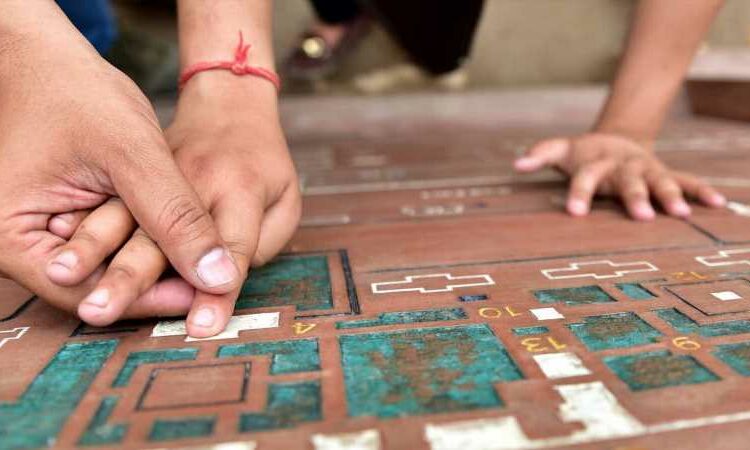The Travel + Leisure Global Vision Awards aim to identify and honor companies, individuals, destinations, and organizations taking strides to develop more sustainable and responsible travel products, practices, and experiences. Not only are they demonstrating thought leadership and creative problem-solving, they are taking actionable, quantifiable steps to protect communities and environments around the world. What's more, they are inspiring their industry colleagues and travelers to do their part.
Three of this year's Global Vision Awards honorees are in the business of creating perspective-shifting experiences — tour operators and travel outfitters that want to expand your horizons, and not just in the literal way. One channels the power of the outdoors into transformative group trips for those facing adversity in their lives. Another invites visitors to explore a rewilded cattle ranch, showing that going back to the land is more possible than we might think. And a third makes the world easier to navigate for those historically marginalized by tourism infrastructure by planning accessible trips for travelers with disabilities. We love to wax poetic about "the power of travel," but these visionaries remind us what it means to truly make an impact. — T+L Editors
Gladiator Trek
Ten years ago, Jeff Bonaldi was feeling disenfranchised at work, disconnected socially, and in the midst of a divorce. Then he went on the first hike of his life: up Bear Mountain, just north of New York City, "It was a very small summit," he says. "But it made me feel accomplished. I felt a deep connection to nature that I'd never felt before." The hike inspired Bonaldi to imagine ways he could share the healing power of nature with others. Today, he and his team at Gladiator Trek lead multiple expeditions annually, giving new meaning to the old line that the journey is the destination. Each 10-day trip takes a group of 15 to 20 people up Mount Kilimanjaro, in Tanzania. "Adventure has been such a healing part of my life. I thought that if other people could have those same breakthroughs, that would be a win," Bonaldi says. "A win is meeting someone who becomes a new friend; a lot of people are really lonely. A win is improving your confidence; climbing Kilimanjaro is an extraordinary accomplishment. Maybe you had some mental blocks about what you thought was possible, and now challenges back home are a little easier; the mountain is a metaphor for the rest of your life." Bonaldi hopes to add more treks in different parts of the world — perhaps the Inca Trail, in Peru, or Mount Aconcagua in Argentina. "They key is getting people immersed in nature," he says. "Then they let the journey do the rest of the work."
Las Torres Reserve
In 1979, Antonio Kusanovic Senkovic, the son of Croatian immigrants to Chile, bought a sprawling ranch in the heart of Torres del Paine National Park, in Chilean Patagonia. For years, his family ran a successful cattle-ranching operation. In 1990, they added a small inn, which later grew into Hotel Las Torres, to serve travelers drawn to Torres del Paine's striking mountains and abundant wildlife, including puma and condor. (Torres is Spanish for "towers," and paine means "blue" in Tehuelche, an Indigenous language of Patagonia.) Then, in 2013, aware of cattle farming's environmental toll, the family made a radical change: they moved all livestock off the land, turned the ranch into a nature reserve, and went all-in on sustainable tourism and lodging — a remarkable investment in the future of a fragile ecosystem. Guides lead excursions into old-growth beech forests and deep valleys tucked amid the towering granite mountains.
Planet Abled
In 2009, Neha Arora visited a temple in Kerala, India, with her parents. Her father is blind, her mother a wheelchair user, and they encountered persistent inaccessibility, as they did whenever they traveled. "My parents said, 'Accept it,'" she says. She wouldn't — and her loud advocacy for them incited what she calls "a mob fight" at the temple. The incident inspired Arora to start her Delhi-based travel company, Planet Abled. "It's not the disability that disables a traveler. It's the environment and thought process of society," she says. In each destination, her team trains hotel staff, drivers, and guides; maps accessible routes; lobbies officials for better infrastructure; and even creates 3D-printed models of monuments to offer blind travelers tactile experiences. She now sends travelers to 40 Asian destinations — "Singapore is most accessible" — and also plans to branch out to Europe. (One repeat client is Australia's national blind cricket team.) Arora hopes that her work will benefit all visitors. "People with disabilities should have the freedom to travel just like anyone else," Arora says. "My mission is to change how travel happens, so that we don't need a separate travel company."
Source: Read Full Article




